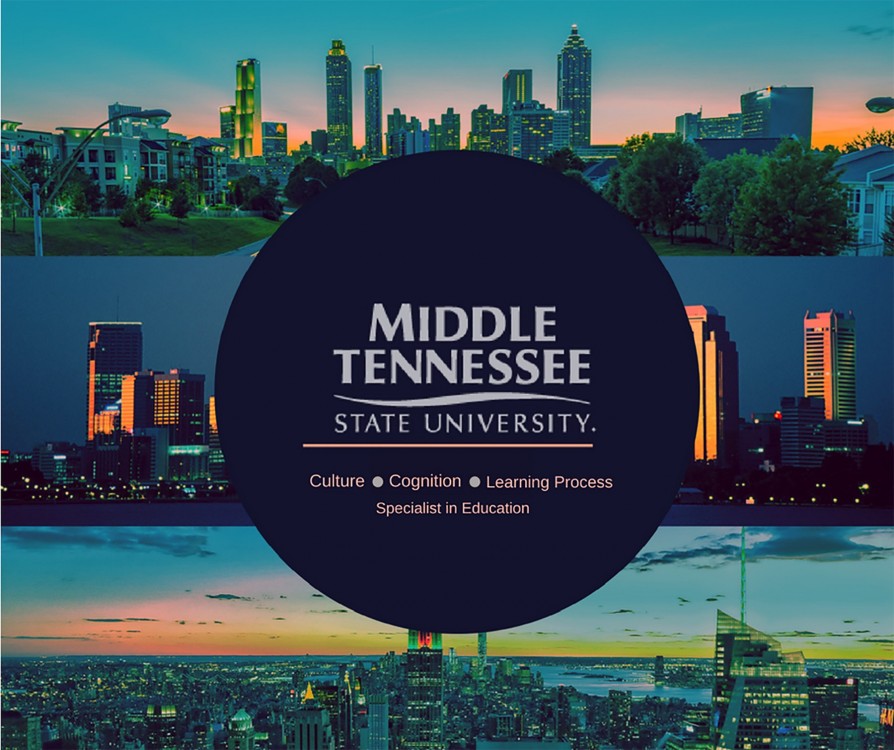MURFREESBORO, Tenn. — MTSU education professor Barbara Young has over 50 years of experience in the field of education, more than 30 of them spent on the Blue Raider campus.
With this depth of educational knowledge, Young saw an opportunity to create and direct a unique, graduate-level program that would offer high quality online instruction and address the plethora of diversity issues facing educators today.
The Culture, Cognition and Learning Process specialization degree was born in 2007 with a course of study that applies to classroom educators, school administrators and other professionals working in an ever evolving and complex world.
“In addition to being completely online, the asynchronous courses are available on a year-round set rotation schedule, which allows students to plan out their own path to graduation,” said Young, a New Orleans native who taught in K-12 classrooms for almost two decades across Louisiana before moving to Tennessee.
“This format flexibility, as well as the graduate-level program’s unique course of study, make it appealing to a diverse group of applicants,” Young added.
After leaving the K-12 classroom, Young moved on to a career in higher education at MTSU’s English Department and the College of Education’s elementary, special education and educational leadership departments, where she is a tenured professor.
In addition to degrees from the University of Louisiana, University of New Orleans and Tennessee State University, she is also a two-time MTSU graduate alumna.
Young’s program aims to answer complex questions such as “What makes learning harder or easier?” “What is learning?” “How do cultural issues impact the teaching and learning process?” and “Should educators know something about the brains of the students sitting in their classrooms?” among others, Young writes about the program website she runs here.
As the name of the program suggests, courses focus on diversity, contributions of psychology to the field of teaching and learning, contributions of neuroscience to the field of education, historical and social context of multicultural education and cultural issues in education.
Students must have a master’s degree to apply, though it is not necessary that they be licensed educators.
‘I appreciated the focus on diversity’
Tabetha Sullens, assistant head for student affairs at the Webb School in Bell Buckle, Tennessee, graduated from the program in 2018 and currently teaches one of the program courses this fall as an adjunct professor.
Sullens said she was blessed to take several of her program courses with Young.
“She (Young) was incredibly supportive, provided remarkable feedback in the courses and encouraged me to go on and pursue a doctoral degree,” Sullens said.
At Webb School, a boarding school, Sullens serves students from 23 countries and 15 states.
“I appreciated the focus on diversity within the curriculum of the program,” she said. “Diversity is such a predominantly important aspect of our daily lives. Understanding how to navigate, inspire and encourage students today continues to evolve…. I gleaned real-world application and use many of the concepts and practices covered within the program.”
In addition to a focus on diversity and cognition, the program includes a research course, which Sullens said that every educator could benefit from.
Sullens also explained that the flexibility of the asynchronous program is doable for anyone, even for someone like her with a demanding full-time job and family responsibilities.
“You (can) mold the courses into your life; that is the beauty of asynchronous programs.”
She was also pleasantly surprised by the bonds she formed with other students in an online program.
“The program allowed us to construct authentic relationships within an online platform,” Sullens said. “I am still in touch with a few classmates and Dr. Young.”
She said educators equipped with this specialization would appeal to hiring schools, and she would encourage currently practicing educators, including her Webb School colleagues, to consider furthering their education in this program or any of the others at MTSU.
“Schools across the U.S. are more diverse every year,” Sullens said. “To encourage our students to be their best selves, we must understand how to support and respond to different backgrounds, experiences, needs and learning styles. This program hones these skills.”
To learn more about the program and its requirements, visit the MTSU program website here and Young’s program website here.
To learn more about all the opportunities at the College of Education, visit the college’s website and Facebook page.


